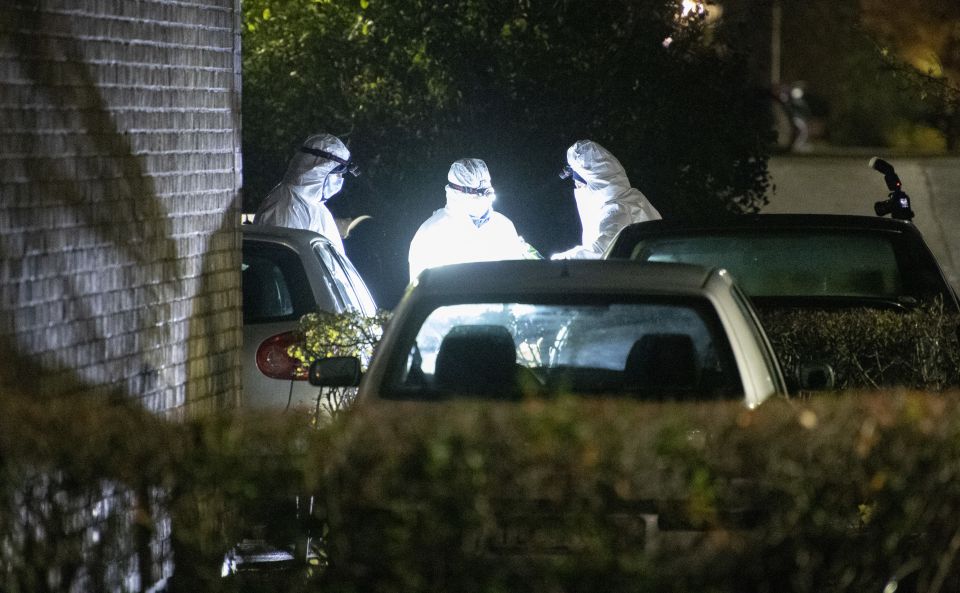Sweden closes its eyes to the crime problem

Rival gangs have been fighting wars in Sweden over their criminal territories for years. In Stockholm, Malmö and Gothenburg shootings and bomb explosions are almost part of everyday life. The way in which Sweden is debating these developments better explains how things could turn out to be, as many of the debaters feel. The numbers and statistics as well as the associated interpretations are as diverse as the country itself tries so desperately to be.
Overall, according to official statistics, the number of crimes in Sweden has risen in recent years. From around 1,370,000 in 2010 to more than 1,550.00 last year. Especially in the area of "murder, manslaughter and deadly attack" the number of acts has gone up: in 2010 there were 329 such cases, in 2018 there were 449. Last year there were more than 300 shootings in the whole country, in which 45 people were killed.
Problems were ignored
However, in Malmö, the number of shootings in 2018 should have fallen. According to statistics published in September, there were 65 shootings in 2017 in the metropolis known far beyond the Swedish borders as a problem city. Thirty-five people were injured and seven were killed. This year it was (until September 1) 22 shootings in which ten people were injured and three were killed. The different numbers could, according to an article in the text, be based on different definitions.
Sweden has long been the proof that problems do not disappear just because you close your eyes to them. Probably in no other country in the world did the elites so consistently try to ignore the problem of immigration. Connections between criminal offenses and the origin, or the ethno-cultural background of the offenders are disguised in the alleged left-liberal pre-eminence consistently and intentionally from above.
The police and the state in Sweden did not register the religion or the ethnicity of the suspects. Self-proclaimed fact-checkers from left-liberal journalism therefore gladly resort to the trick of dismissing critical reports about immigrant crime in the country as "fake news," since the allegations made in it can not be substantiated by hard numbers. Thus, German media also follows the official statement to the Swedish police, known as Code 291 : "Nothing should be leaked out." This applies in particular to acts in which asylum seekers are involved.
Unrequited, submissive love
The mostly social-democratic parliamentary monarchy is also one of the pioneers in Europe against so-called hate speech on the Internet. The "Hets mot folkgrupp" ("incitement against ethnic groups") law is intended to bring to justice all those who express themselves in supposedly inappropriate ways about immigrants or Islam. It mostly aims at pensioners.
Older people who grew up in the liberal Swedish democracy and still believe that the old principles of freedom of expression would still apply there and on the internet. Incidentally, the Swedish media almost exclusively use the abbreviation "HMF" for the law, since there are so many complaints and accusations on the basis of the relatively new paragraph that the abbreviation makes the work much easier for journalists. The exorbitant tolerance imposed by the Swedish state on migrants has not benefited the country.
The subservient love for non-cultural immigrants, so typical of postmodern Europeans, once again remains largely unrequited. As so often and probably not entirely wrongly, it is, above all, perceived as a weakness by the so beloved, and thus profoundly despised. Gang rapes, juvenile delinquency and violent Islamists are increasingly shaping the image that many, especially abroad, have of today's Sweden.
The blame is given to the Danes
Domestically, some still try to mince, relativise, or blame elsewhere for the massive denial of integration, especially of Muslim immigrants. When the Danish Minister of Justice, Søren Pape Poulsen, criticized Swedish migration policy in 2017 and identified it as a cause of high crime, Malmö Mayor Katrin Stjernfeldt Jammeh claims that it is the neighboring country itself that exports the criminal gangs to Sweden.
The Swedish government sees the rise in drug use as a cause of growing crime and the criminologist Manne Grell of the University of Malmö explains the rise in crime - politically correct, theoretically, fuzzy and unconcrete - with a "norm shift" in the criminal milieu.
In the meantime, the emperor is still standing stark naked in what is perhaps the most liberal of all kingdoms, and nobody wants to tell him. If he begins to shiver a little, an old Swedish social democrat just pushes him a little closer to the warming fire of the last bomb blast.
Source:
Junge Freiheit




